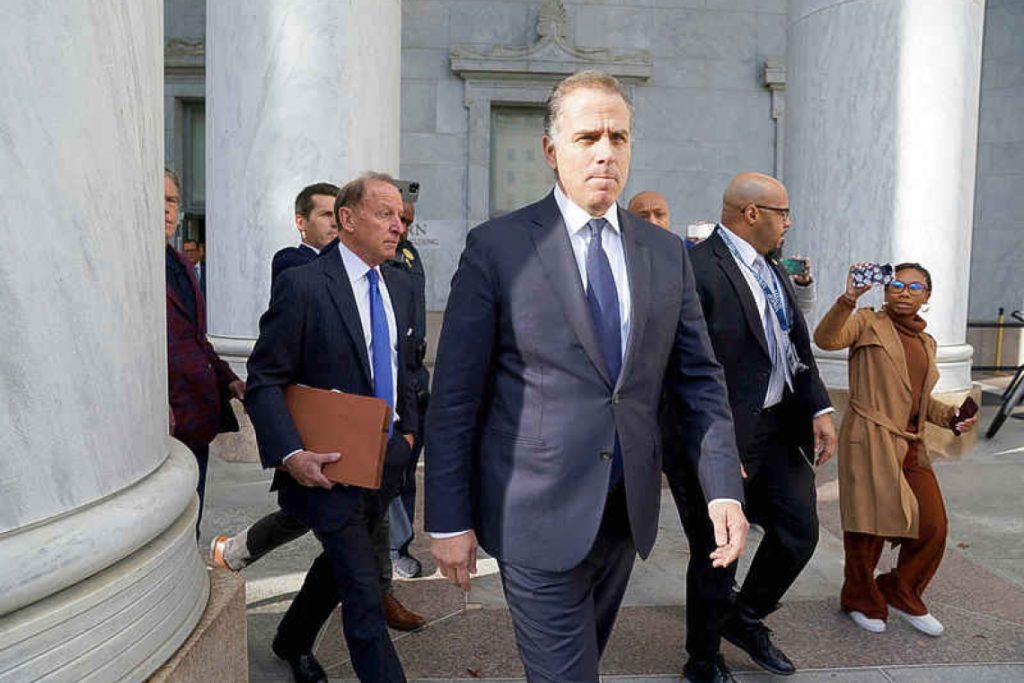Hunter Biden’s recent refusal to testify before a Republican-controlled U.S. House of Representatives committee has sparked significant debate and raised questions about the ongoing impeachment probe targeting his father, President Joe Biden. Amid allegations of improper profiteering and influence peddling, the younger Biden’s decision not to appear before the committee has added fuel to the political firestorm surrounding the Biden family. In this article, we delve into the implications of Hunter Biden’s rejection and provide an analysis of the broader context of the impeachment inquiry.
The Background: Allegations and Impeachment Probe
The impeachment probe initiated by House Republicans centers on allegations that President Joe Biden and his family, including Hunter Biden, improperly profited from policy decisions made during Biden’s tenure as vice president from 2009 to 2017. However, despite persistent claims, House Republicans have yet to provide concrete evidence substantiating their accusations against the Bidens. The lack of clear evidence linking the Bidens to financial wrongdoing has led to skepticism about the legitimacy of the impeachment inquiry.
Hunter Biden’s Rejection: Legal and Political Ramifications
Hunter Biden’s decision to reject the House Republicans’ request for public testimony has legal and political implications. By refusing to appear before the committee, Biden has effectively challenged the authority of the Republican-controlled House to compel his testimony. This refusal raises questions about the balance of power between Congress and private individuals in the context of impeachment investigations.
From a political standpoint, Hunter Biden’s rejection of the testimony call underscores the contentious nature of the impeachment probe and highlights the partisan divide over the Biden family’s alleged misconduct. With House Republicans pushing for Hunter Biden’s testimony as a key component of their inquiry, his refusal to cooperate further polarizes the political landscape and intensifies the debate over the legitimacy of the impeachment proceedings.
The Role of Legal Counsel and Strategic Considerations
Hunter Biden’s attorney, Abbe Lowell, played a pivotal role in advising his client on whether to testify before the House Oversight Committee. Lowell’s letter to the committee chairman, in which he characterized the hearing as a “planned-for-media event,” reflects the legal strategy employed to challenge the legitimacy of the impeachment probe. By framing the hearing as politically motivated and lacking procedural fairness, Biden’s legal team sought to justify his decision to decline the testimony request.
Additionally, strategic considerations likely factored into Hunter Biden’s decision-making process. The timing of the hearing, scheduled shortly before a court appearance in California, presented logistical challenges that may have influenced Biden’s choice to reject the invitation. Moreover, the potential repercussions of testifying publicly amid ongoing scrutiny and media attention could have influenced Biden’s decision to prioritize legal prudence over political expediency.
Future Implications and Congressional Response
Hunter Biden’s refusal to testify before the House Oversight Committee sets the stage for further confrontation between the Biden family and House Republicans. With the committee pressing forward with the scheduled hearing, tensions are likely to escalate as both sides remain entrenched in their positions. The outcome of the impeachment probe hinges on the resolution of these disputes and the ability of lawmakers to substantiate their claims against the Bidens.
Hunter Biden’s rejection of the House Republicans’ call for public testimony has significant legal, political, and strategic implications. As the impeachment probe unfolds, the Biden family’s response to congressional inquiries will shape the trajectory of the investigation and determine its ultimate outcome. Amid escalating tensions and partisan discord, the pursuit of truth and accountability remains paramount in the pursuit of justice.
